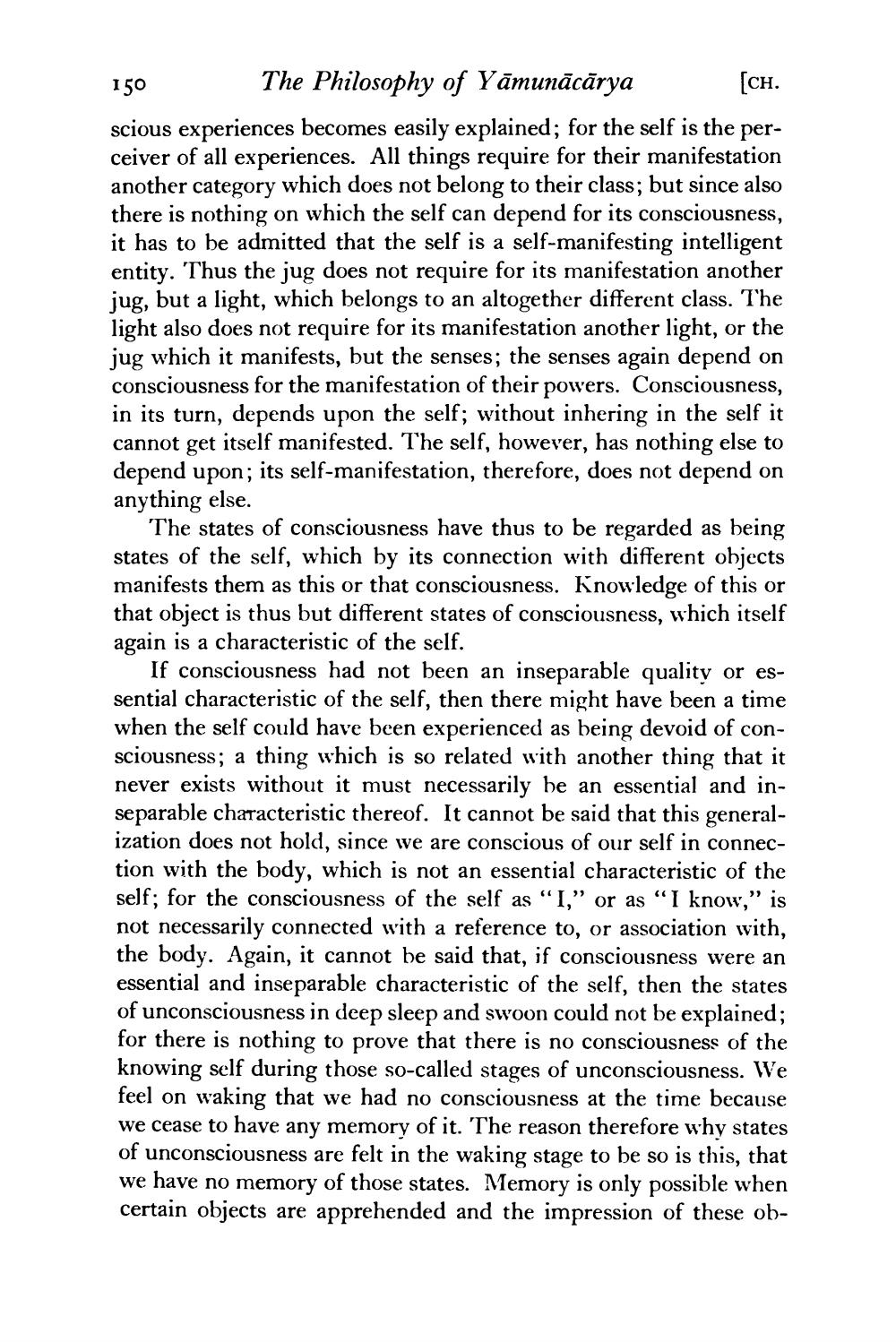________________
150
The Philosophy of Yamunācārya
[CH.
scious experiences becomes easily explained; for the self is the perceiver of all experiences. All things require for their manifestation another category which does not belong to their class; but since also there is nothing on which the self can depend for its consciousness, it has to be admitted that the self is a self-manifesting intelligent entity. Thus the jug does not require for its manifestation another jug, but a light, which belongs to an altogether different class. The light also does not require for its manifestation another light, or the jug which it manifests, but the senses; the senses again depend on consciousness for the manifestation of their powers. Consciousness, in its turn, depends upon the self; without inhering in the self it cannot get itself manifested. The self, however, has nothing else to depend upon; its self-manifestation, therefore, does not depend on anything else.
The states of consciousness have thus to be regarded as being states of the self, which by its connection with different objects manifests them as this or that consciousness. Knowledge of this or that object is thus but different states of consciousness, which itself again is a characteristic of the self.
If consciousness had not been an inseparable quality or essential characteristic of the self, then there might have been a time when the self could have been experienced as being devoid of consciousness; a thing which is so related with another thing that it never exists without it must necessarily be an essential and inseparable characteristic thereof. It cannot be said that this generalization does not hold, since we are conscious of our self in connection with the body, which is not an essential characteristic of the self; for the consciousness of the self as "I," or as "I know," is not necessarily connected with a reference to, or association with, the body. Again, it cannot be said that, if consciousness were an essential and inseparable characteristic of the self, then the states of unconsciousness in deep sleep and swoon could not be explained; for there is nothing to prove that there is no consciousness of the knowing self during those so-called stages of unconsciousness. We feel on waking that we had no consciousness at the time because we cease to have any memory of it. The reason therefore why states of unconsciousness are felt in the waking stage to be so is this, that we have no memory of those states. Memory is only possible when certain objects are apprehended and the impression of these ob




